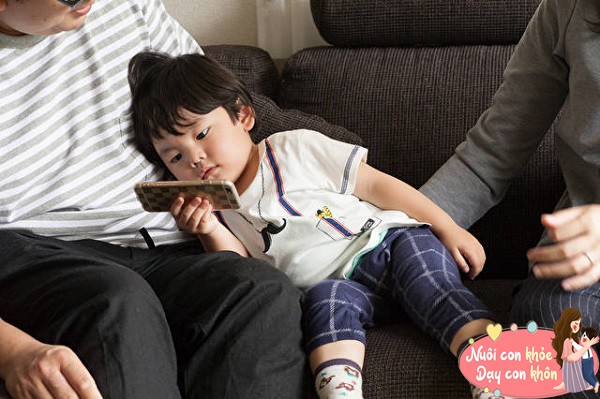A recent post about family life has sparked a lot of discussion among netizens. Many shared their experiences of their spouses being addicted to their phones, with some saying their partners “don’t speak more than five sentences to their children” or spend hours lying on the sofa or squatting in the toilet playing on their devices.
A video of a child crying about their parents’ behavior has also gone viral on Chinese social media, serving as a wake-up call to many parents.
In the video, the child asks, “Why aren’t adults’ phones taken away when they play with them? My dad plays games all day and never asks about my studies. When I make noise, my mom is always glued to her phone and rushes me to finish my homework.”
It’s not just children who are affected by this issue. Many parents themselves struggle with phone addiction, which can have a significant impact on their mental health and well-being.
The Impact of Parental Phone Addiction on Children’s Well-being
Emotional Detachment
When parents are addicted to their phones, children often feel neglected and emotionally detached. Their emotional needs are not met as parents are often preoccupied with their devices, leading to a lack of close communication and interaction.

Parental phone addiction can have a detrimental effect on children’s emotional well-being.
Without a strong emotional connection to their parents, children may feel lonely and insecure. Research shows that a close family bond is crucial for a child’s mental health. Emotional detachment can lead to psychological issues such as emotional instability and anxiety later in life.
Mimicking Behavior
Children are highly impressionable and tend to mimic their parents’ behavior. If a parent is constantly on their phone, the child will unconsciously follow suit, developing an unhealthy attachment to their device.
Over time, they may spend excessive amounts of time on short videos, games, and meaningless entertainment, negatively impacting their studies and daily life.

Children often mimic their parents’ behavior, including phone usage habits.
Delayed Language Development
Language development and organizational skills in children thrive through consistent communication and interaction. For young children, parental engagement and language input are vital for their language development.
Some mothers have shared their frustrations with their spouses’ silent parenting style, such as playing games on their phones while holding their child or lulling the baby’s stroller with their feet while playing a game, neglecting the child’s needs and safety.
Limited dialogue and interaction due to parental phone addiction can lead to delayed language development in children, affecting their expression and social skills.

Parental phone addiction can lead to reduced attention and focus on their children.
Reduced Attention and Focus
When parents are absorbed in their phones, they tend to pay less attention to their children. This lack of supervision and encouragement can lead to distractions, a decreased interest in studies, and, ultimately, poor academic performance.
Worse still, children may come to view entertainment on phones as the focus of their lives, neglecting the importance of education. Parental responsibility and engagement are key to a child’s development. What children truly need is not phone games or videos but their parents’ presence and guidance.
If you find your family in this situation, it’s essential to make a change. Put down your phones, spend quality time with your children, and create a positive and healthy family environment.

Tips for Improving Family Connection
– Set reasonable boundaries for phone usage and make an effort to put your phone away when you’re at home.
– Increase opportunities for face-to-face interaction and communication with your children to understand their inner world better.
– Nurture your children’s interests and hobbies, encouraging them to explore drawing, music, sports, and providing support along the way.
– Enhance family bonding through shared activities like reading, playing games, and sports.
– Establish rules for phone usage at home, such as no phones at the dinner table and limiting screen time each day.

It’s important to set reasonable boundaries for phone usage and create quality family time.
By modeling positive behavior, parents can create a warm and healthy family atmosphere, teaching their children healthy phone usage habits and instilling good discipline.
Children’s happiness lies in the simple things: a loving home, attentive parents, friendships, and positive guidance. When parents recognize the profound impact of their actions on their children, they can proactively improve their habits and create a nurturing and supportive environment for their little ones to thrive.
With sufficient attention and love, children can flourish and grow into confident individuals in a nurturing and supportive environment.





































